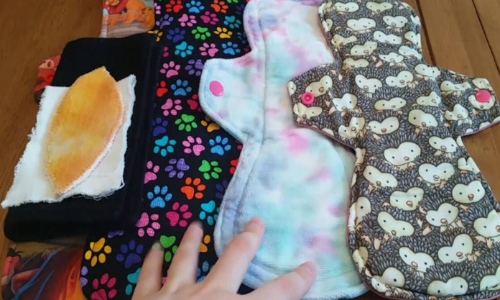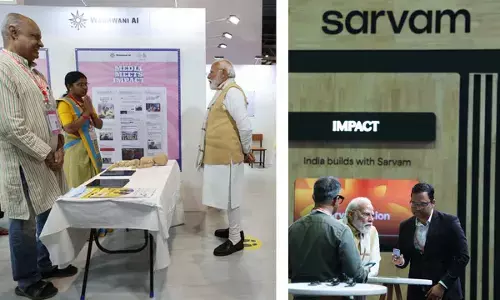India’s sustainable blood revolution

Since the release of the Bollywood movie Padman, a biopic on social entrepreneur, Arunachalam Murugantham, the issue of womens plight with regard to menstrual hygiene has gained prominence Menstrual hygiene, which was once discussed only among females, that too under the veil, is now getting discussed in a sensitive vein by men in the public domain, thereby breaking the taboo of periods
Since the release of the Bollywood movie Padman, a biopic on social entrepreneur, Arunachalam Murugantham, the issue of women’s plight with regard to menstrual hygiene has gained prominence. Menstrual hygiene, which was once discussed only among females, that too under the veil, is now getting discussed in a sensitive vein by men in the public domain, thereby breaking the taboo of periods.
The recent National Family Health Survey (NHFS- 4) has found an overall increase in the use of sanitary napkins across India. According to its figures, nearly 60 per cent of urban and 34 per cent of rural Indian women have now access to sanitary napkins. A large part of the credit goes to the easing of norms by the government for sanitary pad manufacturers and the availability of pads in the primary health centres. However, the use of such pads comes as a double-edge sword.
Since the discovery of the ‘Great Garbage Patch’ in the central North Pacific Ocean, the sustainability of these pads (constituting of plastic as an essential ingredient) has come under the question. The use-and-throw culture created by the readily-available sanitary napkins in urban areas have led to a staggering 1 billion non-disposable pads landing up in urban sewers, landfills, as well as in rural fields and water bodies in India every month, causing a serious blot on the Swachh Bharat Mission.
The above facts present a grave challenge and threat to the environment in general and the very existence of humans and other living beings in particular. Therefore, a meticulously designed, sustainable solution is the need of the hour.
Sustainable menstrual products are the answer to the above problem. Alternatives like cloth pads, menstrual cups and tampons can prove to be both, effective and environment-friendly. The usage of cloth pads may sound archaic; however, they have already gained wide acceptance in the West as well as a few Oriental markets.
Made up of ordinary cotton, silica gel, and unbleached paper, these new-age pads are reusable and leak-proof and provide a comfortable experience to women undergoing their periods. Unlike their predecessors, these reusable cloth pads are itch-free, with longer durability.
Silicon menstrual cups, commonly known as She Cups, have also gained prominence due to their flexibility and sustainability, unlike plastic cups, which are heavy and painful. These silicon cups come with greater shelf life and reusability, thus making them cost-effective.
Though a relatively new idea, these pads and cups have gained worldwide appreciation and markets including in urban India, especially among the environmentally-conscious. Several non-profits and small companies have come forward to join the league of promoting sustainable menstrual products in the last decade.
Recently, biodegradable Anadipads launched by the Navi Mumbai-based Aakar Foundation have gained nationwide acclaim due to their women empowering features. Manufactured by women’s Self-Help Groups (SHGs), these pads have given dignified livelihood opportunities to poor, rural women.
Another venture — Saathi Pads made up of plant-based materials like banana fibres, which degrade six months after their use, has also got international attention and acclaim from environmentalists.
Other innovative options like Ashudhinashak — an incinerator to destroy the used pads has entered into the market on a pilot basis. Furthermore, awareness-generation and mass-mobilisation campaigns like The Red Dot campaign have done a commendable job, giving birth to the much-needed menstrual revolution
Recently, EcoFemme, a Tamil Nadu-based enterprise, organised a seminar-cum-awareness building programme at the Government Girls School in Jammu city, in collaboration with the Rotary and Rotaract Club. The programme illustrated the benefits of switching to sustainable, reusable menstrual products.
Being party to the Sustainable Development Goals, India needs to work on women’s menstrual hygiene and sustainability on a war footing. At the same time, the accessibility and affordability of these products also needs to be taken care of. A loud, sustainable menstrual revolution is an idea whose time has finally come.
- Arushi Sabharwal
(Courtesy: Down To Earth; The author is an environmental activist, engineering graduate and former Secretary of the
Rotaract Club, Sankalp in Jammu)











